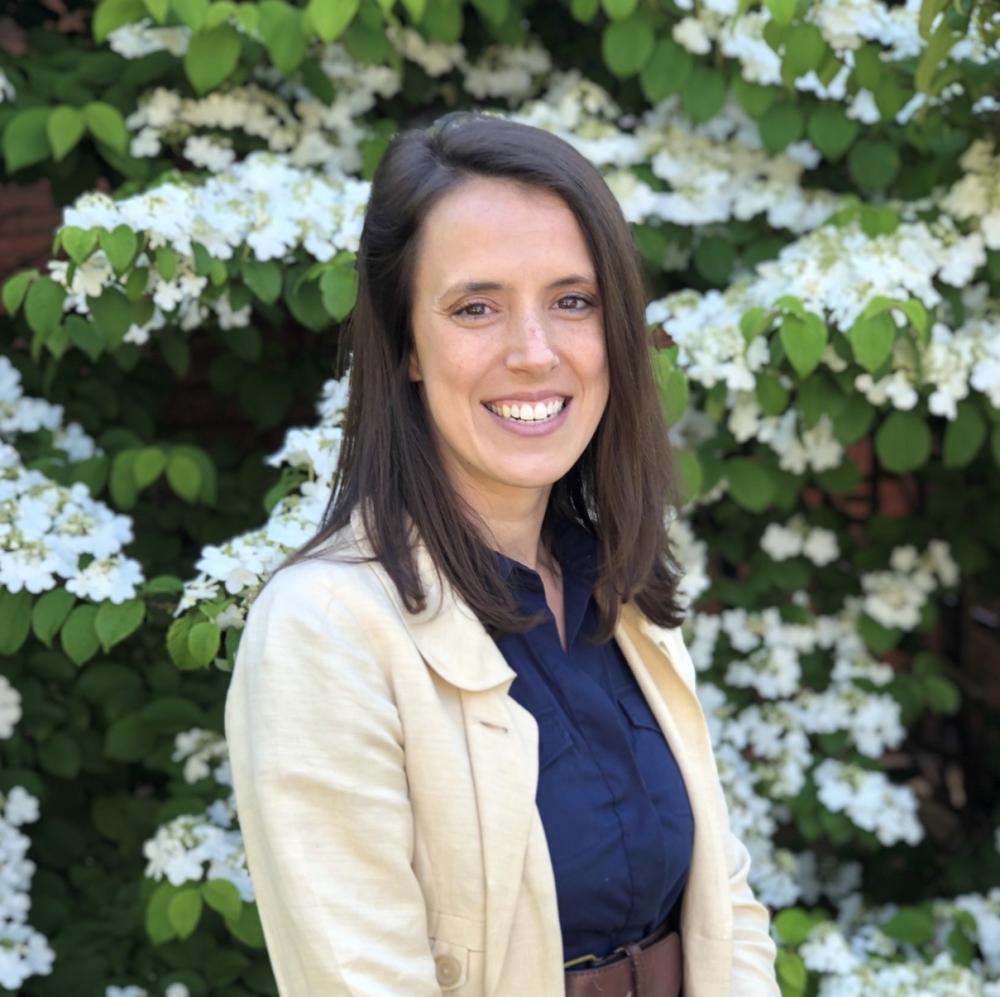
The author cruising around Florence, Italy, on a cargo bike with her two children. (Faces are blurred for privacy; image courtesy of the author)
In 2021, I moved to Florence, Italy, with my husband, two young children, and our dog. Before arriving in Italy, I had never been to Europe aside from a daylong layover in Munich, and I had some misguided assumptions about the region’s public transit system. Before the big move, I proudly told my friends back home that we would not need a car in Florence, because the European way of life would provide us with every train, metro, or bus we could ever need.
As I soon discovered, Europe is not a monolith, and the transit system of Munich was not the transit system of Florence. To complicate matters further, our house was on a hill just outside of the city limits, and the closest bus stop was a 15-minute walk up an impossibly steep incline.
We tried to remain car-free for as long as possible by investing in an electric cargo bike with seats for the children. It was a tremendous help, but it still did not cover all of the logistical needs of a family living in a rural area. We eventually decided to lease a car.
Before then, I often complained about cars being the scourge of Florence. Quaint, arterial roads are treated like freeways, as cars hurtle through the narrow passages at stomach-churning speeds. There are so many cars in the city that Florence’s famed architecture is often hidden behind cars parked two rows deep, on the sidewalks and in the crosswalks. It did not feel good to be a part of the problem.
Several months ago, we decided to move into the city. The Tuscan countryside overlooking Florence is breathtaking, but being in the city afforded us the opportunity to better live out our sustainability values. We once again ditched the car.
Becoming a car-free family (again) meant a shift in lifestyle, but our electric cargo bike made it possible. The bike has enough space to carry two kids and all of the things they bring to and from school and their after-school activities. And it has enough battery power to climb the hills that surround the city. We also bought a rain cover for the kids’ seats and extra lights and bells for safety, along with rainsuits, ponchos, and shoe covers to ensure that we could ride in almost any condition.
The benefits of becoming a car-free household are clear. I reap all of the rewards of regular exercise, but instead of setting time and money aside to go to the gym, it is just built into my day through biking. Additionally, while the initial investment in an electric cargo bike was expensive, we were able to break even in six months by removing costs associated with car payments, insurance and fuel.
Going car-free would not have been possible without a few key factors. First, Florence has a robust system of rental bikes. Our electric cargo bike was expensive, but having access to rental bikes means that we did not need to buy a second one. When we need to go somewhere together as a family, one parent rides our cargo bike with the children while the other rides one of the rental bikes readily available in our neighborhood. And while the public transportation system in Florence is not perfect, it is robust enough to be a good option for travel to areas that are difficult to reach by bike. Finally, for trips to areas that are not serviced by bus or trains, we have the option to rent a car or ride with friends.
Becoming a car-free family has also required extra logistical planning and attention. While Florence has many wonderful, dedicated bike trails, they are not universal, and traffic conditions in Florence are a nightmare. Speed limits in many locations are completely unenforced, and many residential streets are treated like race tracks. As in any other major city, cyclists must always remain vigilant and choose their routes with extra attention, especially when riding with children. Additionally, cargo bikes do not always have the capacity for large shopping trips to procure bulky items.
While there are challenges and limitations, going car-free was the right choice for my family. The children are still young, and riding on the bike together allows us to develop strong connections with our community and environment. We have the freedom to pause and chat with friends we see on the street or stop to admire a beautiful garden. Best of all, my children are old enough to understand that the choices we make can help our planet and community, and they’re getting to live out those choices every day.
This article is part of Travel Month in our 2024 Sustainable Living Challenge, where we unpack accessible ways to see new places and get around your hometown with a lighter impact on the planet. Learn more and take the challenge here.

Mary Riddle is the director of sustainability consulting services for Obata. As a former farmer and farm educator, she is passionate about regenerative agriculture and sustainable food systems. She is currently based in Florence, Italy.














